If you have superannuation, it’s likely you have TPD insurance. And although many Australians are unaware, the vast majority of the population are likely to have and may be entitled to this lump sum.
In this article, we explain everything you need to know about the TPD claims and the TPD claim process, including TPD time limits, TPD payout amounts and the advantages of using a TPD Lawyer.
Read on to find out more or speak to one of our Superannuation Insurance Claim Lawyers today.
What is a TPD claim?
A TPD claim stands for ‘Total and Permanent Disability’ and is a superannuation insurance policy that provides you with a lump sum payment if you are unable to work due to a physical injury, mental health illnesses or chronic illness.
You may be able to make a TPD claim on top of your superannuation fund balance through your super fund.
The two main types of TPD insurance; Any Occupation TPD insurance and Own Occupation TPD insurance. The type depends on what your fund offers and what you choose at the time of selecting your Superannuation insurance policy and based on your ability to work after a claimed event.
| Pros | Cons | |
|---|---|---|
| Any Occupation | Generally less expensive than an own occupation policy.
Available for a wider range of occupation |
You won’t receive a payout if you’re still able to work in another field you’re suited to by education, training or experience. |
| Own Occupation | You could receive a payout even if you were able to return to work in a different occupation, so you could be more likely to receive a disability benefit. | You’ll likely pay a higher premium than you would for any occupation cover.
Some insurance companies might not cover you for specific occupations that are deemed high-risk. |
What is TPD insurance?
TPD insurance provides financial coverage if you can’t work or are unable to work to your usual capacity in any occupation based on your previous education, training or experience as the result of an accident or injury that leaves you totally and permanently disabled.
A payout from a TPD claim can help you cover expenses such as medical costs and treatment services including, home and transport modifications, cost of medical treatments and rehabilitation. It can also help support your ongoing financial needs to take care of you and your family.
Do you need TPD insurance?
You do not need TPD insurance, but TPD insurance can help provide financial coverage and peace of mind if you are unable to work due to an illness or disability.
When deciding if you need TPD insurance you may need you should consider what type of TPD insurance suits you and your circumstances. You may want to seek independent financial advice on what cover you should have.
Types of TPD Insurance
The two main types of TPD insurance; Any Occupation TPD Insurance and Own Occupation TPD Insurance. The type depends on what you choose at the time of selecting your Superannuation insurance policy and based on your ability to work after a claimed event.
| Any Occupation TPD Insurance | Own Occupation TPD Insurance |
| Generally less expensive than Own Occupation Insurance | Likely to pay a higher premium |
| Available for a wider range of occupations | Some insurance companies may not cover you for specific occupations that are deemed as high-risk. |
| You will not receive a payout if you’re still able to work in another field that suits your education, training or experience | You could receive a payout even if you are able to return to work in a different occupation |
Am I eligible to make a TPD claim?
To be eligible to make a TPD claim you must fit into the following criteria:
- You have coverage through your superannuation fund as of the date you ceased work due to injury or illness
- You are unable to work or are unlikely to work for a period of time defined in the policy (usually 6 to 12 months) due to illness or injury with no prospect of returning to work
- You cannot return to work in the same capacity as before the injury or illness
- You have medical evidence and reports from at least two treating doctors to prove you have a total and permanent disability. This is required in almost all cases, contact a TPD lawyer who can help determine if this is required for your specific circumstances.
If you fit into all of the criteria above, you may be eligible to make a TPD claim although different policies have different provisions and definitions. Contact a TPD lawyer who can help you understand what you may be entitled to and check your policy to confirm that you qualify to make a TPD claim.
What is considered a total and permanent disability?
What is considered a total and permanent disability depends on the definition within your policy.
What injuries and illnesses qualify for a TPD claim?
Injuries and illness that leave a person in a position where they are unable to satisfactorily undertake or complete the duties of their usual occupation, or any occupation qualify for a TPD claim.
Examples of injuries that may qualify you for a TPD claim include:
- Back injuries (particularly where surgery has been involved)
- Brain injuries
- Spinal injuries
- Finger Injuries and Hand Injuries where function such as the ability to grip has been impacted
- Loss of hearing, sight or speech
- Loss of limb or the use of a limb
- Paraplegia
- Quadriplegia.
Examples of illnesses or diseases that may qualify you for a TPD claim include:
- Asbestos disease or mesothelioma
- Cancer
- Chronic Lung Disease
- Dementia
- Severe Rheumatoid Arthritis
- Motor Neurone Disease
- Multiple Sclerosis
- Muscular Dystrophy
- Primary Pulmonary Hypertension.
Examples of mental health conditions or psychological injuries that may qualify you for a TPD claim include:
- PTSD (Post-traumatic stress disorder)
- Major Depressive Disorder
- Anxiety
- Adjustment disorder
- Panic disorders.
The above examples are just a general guide. Check the criteria in your TPD insurance policy or contact a TPD lawyer who can help you understand what you can claim for.
Most common TPD claims
The most common TPD claims are:
- Cancer TPD claims
- Heart attack or heart disease TPD claims
- Stroke TPD claims
-
- Loss of senses TPD claims such as your ability to see or hear.
- Loss of a limb / limbs or part of a limb as a result of an industrial accident, car accident or another common TPD claim.
- Anxiety TPD claims. Anxiety can cause agoraphobia, irregular heartbeat and breathing difficulties
- Depression TPD claims
- PTSD TPD claims are common for those who have been in the military or work in a stressful job.
- Terminal and ongoing disease TPD claims including Asbestos disease or mesothelioma, HIV/AIDS, Tuberculosis and Malaria.
TPD Payouts
How much is a typical TPD payout from a superannuation fund?
A typical TPD payout ranges between $30,000 and $500,000. The amount you receive will be based on your superannuation policy and personal circumstances.
Is a TPD payout considered taxable income?
No, a TPD payout is not considered taxable income and therefore is tax-free. However, there can be tax implications if you access the balance of your superannuation at the same time as receiving the TPD payment. You should obtain independent financial advice prior to receiving your TPD payment.
Do TPD payouts affect Centrelink?
You should obtain independent financial advice prior to receiving your TPD payment.
Do TPD payouts affect Centrelink?
No, TPD payouts have no effect or impact on your Centrelink or other benefits. A TPD payout will be paid directly into your superannuation account and is excluded from Centrelink means testing if you’re under the Centrelink Age Pension age. That is if you leave it there.
However, if you withdraw any part of your TPD payout (or existing superannuation) Centrelink will assess and it may impact your Centrelink entitlements.
For example, if you withdraw your TPD payout to pay bills etc, Centrelink will not assess these amounts. However, if you withdraw your TPD funds and put them in a bank account, Centrelink will assess this additional amount in your bank account and apply their Income & Assets Test.
Different Centrelink benefits are means-tested in different ways and may affect your Centrelink or benefits, so it’s a good idea to get professional financial advice for your specific circumstances, TPD entitlement and what may affect your overall payout.
Can you claim more than one TPD payout?
Yes, you can claim more than one TPD payout or make multiple TPD claims if you have more than one superannuation policy. You can make a TPD claim for each policy. You will be required to submit a separate claim for each.
Making more than one TPD claim is quite common, with many people changing jobs over the year and having multiple superannuation funds as part of this. However, making a successful TPD claim against one policy does not affect the outcome of other TPD insurance claims.
Every superannuation fund is different in its definitions, criteria and requirements for a claim. Your entitlements depend on both the terms of the trust deed, and the specific insurance policy.
Our TPD lawyers at Maxiom Injury Lawyers will gather and carefully assess these documents and provide personalised advice about your entitlement to a claim.
If you are unsure whether you have any dormant superannuation accounts, speak with our team for some advice on how to enquire whether any funds remain open that might have potential cover.
How much do lawyers charge for TPD claims?
At Maxiom Injury Lawyers, we adopt a no-win no-fee arrangement and charge based on the amount of work required to get you a successful outcome resulting in a payment. If we win a case for our client, we charge a portion of the compensation, with our success fees typically ranging between 15-20%.
The TPD Claim Process
How do I lodge a TPD claim?
The steps to lodge a TPD claim are as follows:
1. Note down any key dates and relevant information including:
- The date you were considered totally and permanently disabled by your doctor
- The date you last performed the normal duties of your job
- The date you last worked in any capacity.
2. Obtain a copy of your fund statement covering the date in which you ceased work due to injury or illness.
3. Get legal advice from a personal injury lawyer in Melbourne.
A TPD lawyer can help you navigate through the process, inform you of your rights and help you understand what you may be entitled to. Your lawyer will ask for a copy of this statement and then write to your fund(s) to obtain the relevant policy documentation and forms. Once received, your lawyers will advise you as to your cover and your prospects of meeting the terms and conditions under the applicable policy.
4. Get a completed Medical Attendant’s Statement (MAS) and Certificate of Release.
- Arrange for a doctor to complete the Medical Attendant’s statement (MAS)
- Arrange for another doctor to complete the Certificate of Release.
You’ll need to pay any fees associated with this step.
5. Submit your application, including:
- All required documents including proof of identity, authorities and questionnaires
- Medical records
- MAS (Medical Attendant’s statement) / two certificates of release that need to be completed by two different doctors. If you can’t get your MAS completed, please contact a TPD lawyer or your case manager for help with progressing your claim.
- A written submission explaining why the claim should be approved.
6. After an initial assessment, the super fund will pass your TPD claim onto the Insurer to do an assessment.
7. The Insurer will review your application and will let you know if they need more information including a specific medical report. They will pay for any fees associated with this step.
8. If your application is approved, you will receive in writing the amount payable and the Insurer will pay the benefit payment into your super account.
9. If your application isn’t approved, you will receive an outcome of your review, explaining the reason for the decision. Follow the dispute process if your claim is denied.
How long does it take to get a TPD payout?
It usually takes around 6-12 months from when they receive your MAS for a TPD to be made and finalised.
It may take longer for more complicated claims and if:
- Your injury or illness happened a substantial time ago (several years),
- Your treatment is ongoing
- You have returned to work in some capacity.
Contact Maxiom Lawyers today. We can advise you on how to prepare your documents, so the claim is processed in the shortest possible time frame as possible.
Why would a TPD claim be denied?
An Insurer may decline the TPD claim if they believe you have not satisfied the definition or criteria for a TPD claim.
A TPD claim may be declined for the following reasons:
- The Insurer does not believe you satisfy the definition of the definition of disability in your policy
- You have not met the working requirements prior to the date of injury
- The Insurer has obtained medical evidence that does not meet the insurance company’s requirements
- The Insurer has obtained medical evidence that states you do not have an injury or illness
- The Insurer deems your claim fraudulent or unsubstantiated
- The Insurer finds that you can work in some form of employment.
- A dispute over the evidence you’ve provided
- Your TPD policy became inactive for some time or you have closed your account
- You have applied before the minimum waiting period
- You have not met your work history requirements
- You do not meet age restrictions.
Making even one error during the TPD process can seriously jeopardise the success of your TPD claim or make it harder to challenge the Insurer’s decision.
TPD Claim Rejected – What now?
Get legal advice from a specialist TPD Lawyer
If your TPD claim has been denied you should always consult a TPD lawyer to discuss your options as you might still be able to get the Insurer’s decision reversed.
The benefits of working with Specialist TPD Lawyer cannot be over-emphasised.
A specialist TPD lawyer:
- will have an in-depth understanding of insurance companies’ legal processes and tactics
- can help to find out your options and whether you can get the Insurer to reverse its decision
- can help advise you on how to complete the necessary paperwork best to maximise your chances of success
- will alert you to the required evidence you will need
- help you understand what compensation you might be entitled to.
A specialist TPD lawyer can also help you understand the process of:
- Requesting an internal review by the super fund’s internal dispute resolution team
- Referring the decision to the Australian Financial Complaints Authority (AFCA)
- Commencing your claim in Court to be determined by a Judge.
Specialist TPD lawyers can also check your superannuation funds to find out what cover you have and what is required including:
- The time limits for your TPD claim
- The minimum wait periods
- Whether you meet work history requirements
- The evidence you have provided, whether it’s good enough and any further evidence you may require
- Any exclusions or eligibility clauses in your TPD insurance policy.
A lot of people who submit TPD claims on their own, end up feeling overwhelmed and abandoning their claims when the process becomes too complicated, lengthy or frustrating. A specialist TPD lawyer can help be your voice and simplify the process by advising you on how to make a TPD claim with the best chance of a successful outcome.
Why should I try and challenge the Insurer’s decision?
You should try and challenge the Insurer’s decision and follow the dispute process as your claim could be denied for the following reasons:
- Insurers often conduct a brief review of the file and decline claims based on little or no evidence.
- Insurers fail to appoint the correct medical expert
- Insurers may fail to ask the right questions
- Insurers may fail to address the policy definitions of TPD.
How do you successfully claim TPD?
There are 6 main steps Maxiom Injury Lawyers suggest you take for a successful TPD claim:
- Always keep the evidence. The key to a successful TPD claim is providing all the necessary documents and information and being as thorough as possible. Necessary documents to substantiate your claim include photos, medical records, workers compensation files and information about every person involved during the process. It is better to have the information and not need it than to need it and not be able to obtain it. So, make sure you collect all the information, write it down, keep it in a safe, accessible space and get advice on how and when to use these details.
- Obtain the correct medical proof you need from a registered medical practitioner including the Medical Attendant’s statement and the certificate of release that needs to be completed by two different doctors. Keep all information, including medical records and reports and ensure these are ready and on hand.
- Provide a clear written submission explaining why your claim should be approved. An expert personal injury lawyer can help you draft a written submission that will accompany your application outlining in detail your pain, suffering, history, injuries, illnesses, employment and everything in between.
- Don’t rush the application and make a mistake. We understand wanting to get your application in as soon as possible so that the process can be submitted and be over as quickly and stress-free as possible, but this will not always result in the best outcome and can lead to costly mistakes. Your application needs to be as thorough as possible and cannot be submitted with any incorrect information.
- Get legal advice. Another key to a successful TPD application and claim is getting legal advice from a passionate legal representative who has a high success rate and can help you navigate the legal procedures, cut through the bureaucratic red tape and help you successfully claim your TPD funds.
- Be as detailed as you need to be with your TPD lawyer. No detail or information is too much. An expert TPD lawyer will take all the details and information you have provided and let you know if any more information is required. Specialist TPD lawyers will know exactly what needs to be done to get your claim approved.
Getting help with your TPD claim
it is important to contact a TPD Lawyer as soon as possible. Your lawyer may be able to successfully claim a TPD payout and challenge a denied TPD claim to get an Insurer’s decision reversed.
Talk to our no-win no-fee lawyers today
All TPD claims incur costs during the preparation of your TPD claim.
These include the time your personal injury lawyer spends preparing your case and the cost of any disbursements (i.e. filing fees; engagement of medical experts; obtaining reports) required to support your claim.
At Maxiom Injury Lawyers, we operate on a No Win No Fee basis. This means if you don’t win your case, we will not charge you professional fees for the work we perform. We strive to keep our legal costs and disbursement fees minimal, cap our costs wherever feasible, and don’t charge an uplift fee.
Why Maxiom Injury Lawyers?
We are recognised as one of Australia’s leading personal injury lawyers.
We win complex TPD cases
Maxiom Injury Lawyers is proud to have taken on and won complex TPD cases.
Our team at Maxiom Injury Lawyers are passionate advocates of social justice.
In our experience, clients receive the most benefit during the legal process when they work with a lawyer who actively listens to their stories and understands their concerns about the legal process.
That’s why at Maxiom Injury Lawyers, you will be partnered with an Accredited Specialist in Personal Injury Law who is accessible when you need it and will advocate for your rights, be your voice and ensure you receive your full and fair entitlements.
“Sach Fernando immediately put in place the necessary framework required to achieve the ultimate financial outcome and to ensure I had the right support during such a difficult time – both were achieved and exceeded my expectations, including the accessing of all superannuation and insurance benefits available to me.”
– Jason Thomas
Find out where you stand.
The pathway to recovery always starts with seeking help. We can help you navigate the various insurance schemes and can support you through the entire claims process.
If you require passionate TPD lawyers in Melbourne who you can trust, contact Maxiom Injury Lawyers at any time by phone or by form.











